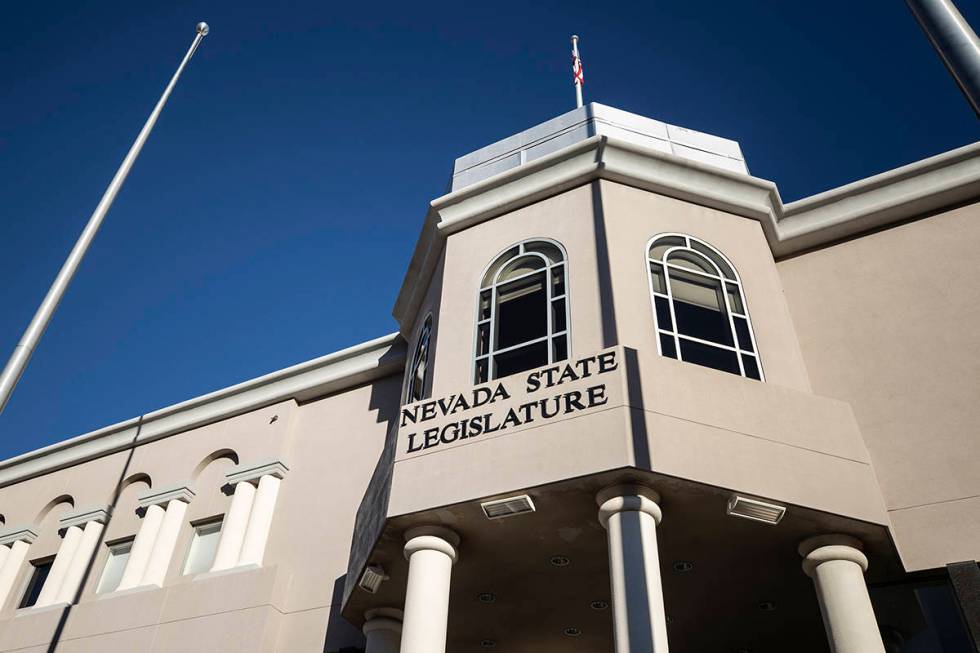Bevy of bills introduced, deadline waived in Carson City

CARSON CITY — Proposals to abolish the death penalty, protect LGTBQ-owned businesses, ban “bee-killing” pesticides, require gender-neutral public restrooms and regulate untraceable 3D-printed guns emerged in the Senate and Assembly on Monday as both houses moved to dispense with a deadline for lawmakers to submit bills.
The measures were among the more than 50 new bills introduced on a day that typically marks the end of bills requested by lawmakers. The change avoided what legislative leaders last week cautioned could have been a marathon session Monday to get bills introduced.
Assembly Bill 286 would ban the sale and possession of unfinished firearm frames or receivers, known commonly as “ghost gun kits,” except by licensed firearms importers or manufacturers. The weapons are often are made using 3D printers and have no serial numbers, making them virtually untraceable to law enforcement. The bill, sponsored by Assemblywoman Sandra Jauregui, D-Las Vegas, was referred to the Assembly Judiciary committee.
Senate Bill 228, banning the death penalty, was sponsored by Sen. James Ohrenschall, D-Las Vegas, and referred to the Senate Judiciary committee.
Also introduced Monday
Assembly Bill 261 would require schools to teach the history and contributions to society of Native Americans, people with disabilities, minorities, LGBTQ and immigrants or refugees. It was referred to the Assembly Education committee.
Assembly Bill 263, another Republican-backed election security measure, would require a performance audit for anyone who verifies signatures during an election and an audit of a random sampling of ballots scanned by a signature-verification machine. It was referred to the Legislative Operations and Elections committee.
Assembly Bill 268, a bipartisan police reform bill, would require law enforcement agencies to adopt a written policy on use of force including requirements for officers to use de-escalation techniques. It was referred to the Government Affairs committee.
Assembly Bill 275 would ban the use of neonicotinoid pesticides that are blamed for bee die-offs. It was referred to the Natural Resources committee.
Assembly Bill 280 would require single-use public restrooms to be gender neutral. It was referred to the Government Affairs committee.
In the Senate
Senate Bill 236 addresses police training, procedure and potential police bias. It would require agencies to set up identification and intervention programs to monitor officers who display signs of bias, require officers to have an associate’s degree or two years’ previous military service, change the rules for when officers can claim immunity from prosecution in civil rights cases, and require the state Department of Public Safety to record information on traffic stops for analysis of possible racial profiling. It was referred to the Judiciary Committee.
Senate Bill 237 would add LGTBQ-owned small businesses to those owned by women, minorities or veterans that are eligible to receive various forms of additional assistance, incentives and protection from discrimination. It was also referred to the Judiciary committee.
Senate Bill 242, sponsored by five Republicans, would make it a misdemeanor to picket at a specific person’s home. It was referred to the Senate Judiciary Committee.
In committee Monday, the Senate Education heard Senate Bill 102, which would move up the age cutoff to enroll children in kindergarten, first grade and second grade. Children would have to turn 5 years old by Aug. 1 to enroll in kindergarten; the current cutoff is Sept. 30.
Proponents noted that 39 other states have cutoff dates earlier than Nevada’s and cited findings that show children performing better academically if they start school later. Lawmakers who were skeptical, including former educators, said children progress at different rates and should be evaluated accordingly. with parents ultimately deciding if they were ready for school.
The Senate Judiciary committee heard Senate Bill 166, which would make the criteria for hate crimes the same for both misdemeanors and felonies, removing an existing requirement in the case of felonies that the perpetrator and victim be of different race, color, sexual orientation, gender identity or other defining characteristic. It also adds making a fake terrorist threat or threatening a student or school employee to the list of possible hate crimes.
Contact Capital Bureau reporter Bill Dentzer at bdentzer@reviewjournal.com. Follow @DentzerNews on Twitter. Contact Capital Bureau Chief Colton Lochhead at clochhead@reviewjournal.com. Follow @ColtonLochhead on Twitter.